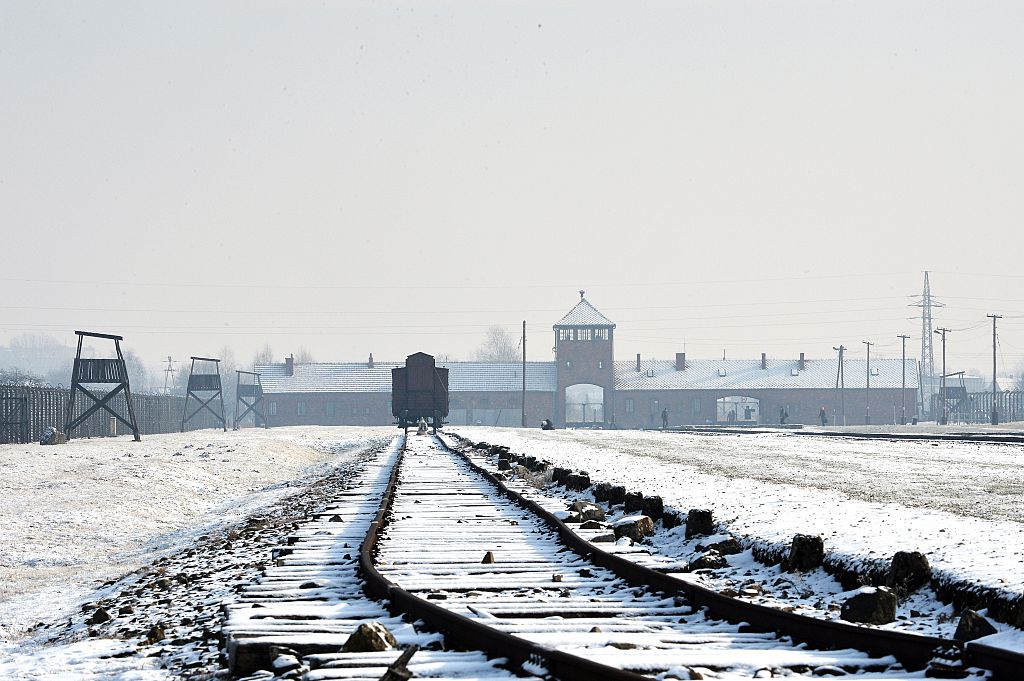Millennials and Generation Z pride themselves on being ‘anti-racist’. We might, then, expect that remembering the Holocaust properly would be important to them – it was the largest act of racial hatred in modern history. The truth is very different and more troubling.
New research commissioned by the Claims Conference finds Dutch millennials and Gen Z are more likely than the rest of the public to be ignorant of the Holocaust, deny the facts, oppose acknowledging the Netherlands’s role, and be sympathetic to contemporary Nazism. While 12 per cent of Dutch adults believe ‘the Holocaust is a myth’ or ‘the number of Jews who died has been greatly exaggerated’, that jumps to 23 per cent among those aged 18 to 39.
Twenty-nine per cent of Dutch people believe two million or fewer Jews were murdered, a figure that rises to 37 per cent among millennials and Gen Z. It was six million. One quarter of Dutch respondents know people who deny the Holocaust, but that rises to one third for the young. Under-40s are less likely to support Holocaust education by a margin of 15 percentage points than the public overall.
These are disturbing attitudes, but they are not limited to the Netherlands. A 2018 study by polling firm ComRes investigated views on the Holocaust, Jews and anti-Semitism in Britain, France, Germany, Poland, Hungary, Sweden and Austria. It found one in ten young adults in Austria, the birthplace of Adolf Hitler, had never heard of the Holocaust. Neither had one in five French millennials. Three in ten young Europeans agreed that ‘commemorating the Holocaust distracts from other atrocities and injustices today’ and that ‘Jewish people use the Holocaust to advance their position or to achieve certain goals’.
This is not just a European phenomenon, either. Half of American millennials and Gen-Z cannot name a single concentration camp. Six in ten do not know that six million Jews were massacred. Pressed on the number, more than one third suggested two million or fewer died. One in ten young American adults say Jews caused the Holocaust, a figure that doubled among respondents from New York.
The Holocaust is moving from an event of our time to an event from history
The democratisation of information through the internet partly explains this worrying trend. Forty years ago, if you wanted to disseminate Holocaust denial, you needed access to a printing press and a means of distribution. Liberating information-sharing from corporate and state power has brought benefits; it has also overwhelmed the filters that previously limited the spread of misinformation, conspiracy theories and extremism. Online, the social construction of the truth is not a flaw but almost a design. And so facts once learned didactically by older generations are now first encountered by Gen Z in spaces where almost all knowledge is contested. Facts once solemnified in ink are today just another bit of data.
There may be other explanations for the increase in Holocaust denial and misinformation. There is the rise of nationalism among young people in places like France, where one in four under-35s voted for Rassemblement National’s Marine Le Pen in the first round of the 2022 presidential election, compared to one in ten over-70s. There’s also the West’s complicated changing demographics. Although research commissioned by the American Jewish Committee found France’s growing Muslim population expressing markedly higher levels of antisemitism than its general population, it also found that younger and more secular Muslims were significantly less likely to think this way.
There is another, very simple, reason that the Holocaust isn’t being remembered properly. It is making the transition from an event of our time — one in which the people involved are still living — to an event from history. In the decades after the liberation of the camps, Hitler’s attempted extermination of European Jewry became known as the greatest crime of that century, and it weighed on European and American consciences. There was a determination to learn from the horrors of the recent past.
Today, the Holocaust is no longer recent. There is still plenty of talk of ‘learning lessons’ and ‘never again’ but, over time, the Shoah will probably no longer be at the very core of what we consider evil. This in itself is not Holocaust denial, but it does contribute to denialism and anti-Semitism – or at least makes expressing and recruiting for these ideologies much easier.
A week ago, Zigi Shipper, a survivor of Lodz and Auschwitz who lived in the UK, died on his 93rd birthday and we lost another living testament to the Shoah. Simon Wilder, whose father Krulik was friends with Zigi, writes in a powerful blog:
‘The survivors’ greatest fear was that the world would forget the effort to remove Jews from the face of the earth, and that it would happen again.’
This is the challenge that lies ahead. To keep the Holocaust close to our moral conscience even as we move further away from it. To say that, yes, it happened. Yes, it was planned. Yes, it was six million. Yes, it can happen again.






